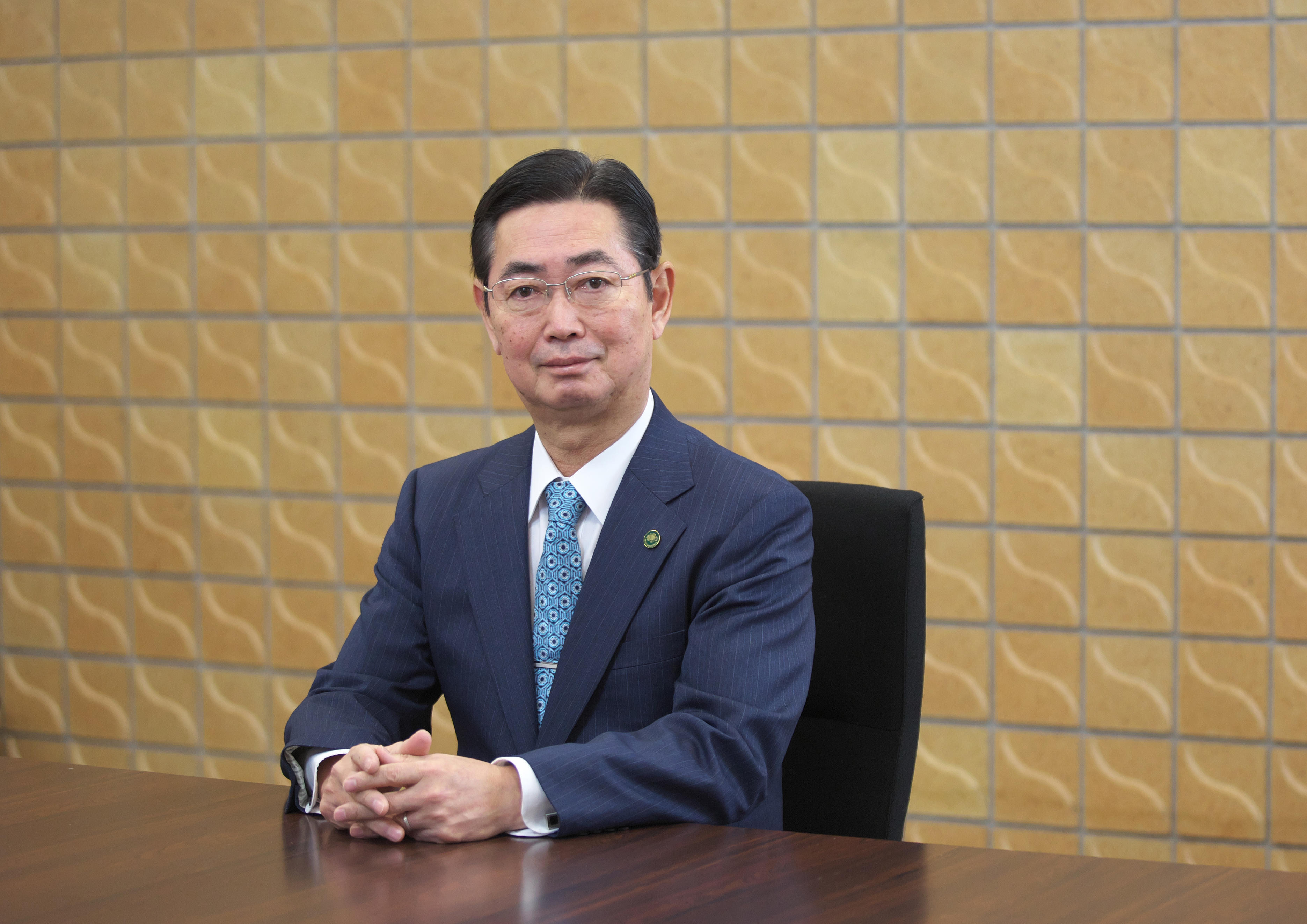- Target
- Contacts
- Access
- Document Request
- Language

Message from the President

Co-consideration and Co-creation
As a higher education and research institution that has been and will keep on creating a better future, it is important that Iwate University continues to be the region's repository of knowledge and center of knowledge creation.
This requires the sound management of the University, both in terms of its administration and the education it provides. In education, research and social responsibility, Iwate University must be a presence that is there for the community. It must also be respected and loved for the education and research it provides as well as the social responsibility it fulfills. We have formulated the Iwate University Vision 2030, which looks ahead 10 years. The whole of the University will aim to realize this vision that I would like us to aim for - to become a place of co-consideration and co-creation (i.e., a place of thinking together and creating collaboratively) by students and members of the faculty.
Human resources development - which enables the growth of both faculty members and students - and the promotion of a system that enhances the strengths of faculty members, students and administrative staff are now imperative to make Iwate University a unique institution of higher learning that creates a better future.
Regarding shaping student strengths from the perspective of providing society with capable talent, more must be done than simply teach academics. Also needed are the kind of education that encourages growth which enables self-actualization when students have become working members of society, and the cultivation of a literacy that makes them able to adapt to a multicultural symbiotic society. I believe that this requires the preparation of a diverse learning environment, including the provision of opportunities to learn while dealing with society. The educational curriculum should be enriched to make it possible for students to study what they desire, with studying and learning in which students and faculty members stimulate each other as the academic core. Additionally, a careful and meticulous coordination of learning should be achieved by effectively linking the educational portfolio (In Folio) and institutional research (IR) that are currently in place. The career-support structure should also be enhanced. What is more, to lead to the cultivation of highly specialized professionals capable of playing an active role in the international community, these concepts should be applied not only to our liberal arts education but also to undergraduate and graduate specialized education.
In terms of developing strong educators, there is a need to prepare an environment that allows faculty members to freely carry out outstanding research. I would like to see Iwate University continue to be a center of knowledge creation, where truth can be pursued from a long-term perspective and based on the free thinking of faculty members. To make this possible, it is important that faculty members collaborate with each other and reduce, as much as possible, the hours spent in organizational operations so that they can secure time to devote to desired research. As support, we will work to augment and enrich university education administrators (UEA) and university research administrators (URA) as well as strive to construct and upgrade facilities. Furthermore, as befitting a university that invests in the future, we will also strengthen, through large-scale external funding and other means, the support provided to leading research.
Meanwhile, for the aforementioned enhancement of the strengths of students and faculty members, the realization of human resources development to boost the strengths of administrative staff - who play a substantive role in the operation of the University - is indispensable to achieve our aim to become a higher education and research institution that creates a better future.
Lastly, the social responsibility activities of Iwate University are recognized, in Japan and elsewhere, as being trailblazing initiatives. It was this foundation that enabled us to make, following the Great East Japan Earthquake, the huge contribution to reconstruction that was highly commended by the national government and the region. Going forward, we will, of course, continue the social responsibility activities that could be considered the core of the disaster reconstruction and social contribution of a regional university that has experienced the Great East Japan Earthquake firsthand. I believe that a university needs to develop, from the perspective of education and research - the biggest mission of a higher education and research institution - a relationship with its region that benefits both parties. In other words, through the education it provides, a university should produce students who will play an active role in the regional community. Furthermore, through the results of its research, a university should solve challenges faced by the regional community or by companies in the region. To this end as well, it is integral that Iwate University takes the initiative and acts to become a regional stronghold of knowledge. We must also utilize the discretionary capabilities realized as a result of becoming a national university corporation to strengthen our structure into one that allows us to respond flexibly and swiftly to the needs of society.





